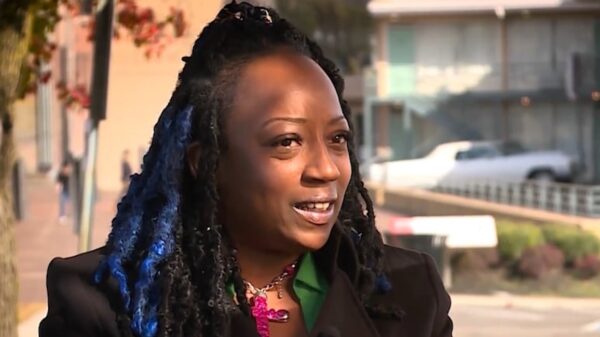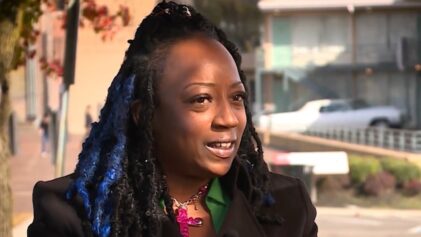A Black Lives Matter activist serving more than six years in prison for voter fraud has been released after new evidence in the case shows state officials admittedly made an error.
The Tennessee judge who sentenced Pamela Moses said the activist knew she was not qualified to vote but “tricked” officials into giving her clearance. New evidence unveiled by reporters shows state officials did not check their own files and were responsible for the error.

It is one of several errors the state made in the handling of Moses’ quest to restore her rights.
Moses registered to vote in 2019 but had permanently lost her right to vote because of a 2015 conviction. Tennessee officials corresponded with Moses throughout her restoration process, but Moses said she was never told that she could never vote again, according to reports. The state never removed her name from the voter rolls.
An email made public by The Guardian shows a Tennessee Department of Corrections probation officer admittedly did not do his “due diligence” when he told Moses that her probation sentence was over when it was not.
The email details the findings of an internal investigation into the error. It revealed the probation officer failed to cross-check records, which led to a misrepresentation in Moses’ probation period.
Moses found out she was ineligible when she decided to run for mayor of Memphis. Her candidacy was rejected by the Shelby County Election Commission because of her felony conviction. Moses was convicted for evidence tampering, an offense that causes someone to lose their voting rights in Tennessee permanently.
Not knowing she had lost her right to vote forever, Moses went through the process of getting it restored. A judge later concluded that she was still on probation.
Still believing that her probation was over, Moses sought confirmation from the probation office, where according to the email, an employee identified as Manager Billington gave Moses a signed, certified document confirming her probation was over.
She submitted the document with a voter registration form in September 2019, but the next day the probation office sent an email to election officials saying they made a mistake and Moses was actually still on probation.
The corrections department launched the probe two days after Billington erroneously signed the form. Billington told corrections administrators, Moses showed up requesting the form be signed on Sept. 3, 2019. She waited in the lobby for an hour while he researched her case.
Billington said he saw a note on Moses’ file from a court specialist on February 25, 2016, placing the activist on supervision for two years.
Billington said he assumed the court specialist forgot to update the file and Moses’ probation was over, but Correctional Administrator Joe Williams said Moses had an additional probation order in March that held her on probation until Aug. 13, 2020.
“Manager Billington failed to adequately investigate the status of this case,” Williams wrote in the email. “He failed to review all of the official documents available through the Shelby County Justice portal and negligently relied on a contact note from a court specialist in 2016.”
Moses was convicted for perjury on a registration form in November because of the mistake. Criminal Court Judge Mark Ward, who handed down her sentence, said Moses has “nothing but contempt for the law and acts as though she believes herself above the law.” On Feb. 25, Ward ordered Moses be released and retried. The judge said the prosecution held back the evidence.
“The document does contain information that was not addressed in the direct and cross-examinations of Billington and contained the identity of an additional possible witness for the defense,” Ward said.
Shelby County District Attorney Amy Weirich blamed the error on the corrections department. Corrections officials said the email was a personnel matter, so it was not included in Moses’ file, which they turned over to the district attorney’s office.
Ward also said he erred in allowing information about a 2000 felony conviction and her earlier request to voting rights restoration to be introduced in the trial when it had “no significant relevance.”
Prosecutors can appeal Ward’s order, retry the case, or drop the charges, according to The Guardian.
Civil rights activists say Moses’ harsh sentence is an example of the racial disparities in the criminal justice system. White people charged in more direct cases of voter fraud in other states have been sentenced to less time than Moses. Democratic attorneys general across the country said Moses’ case is reeks of voter suppression.
“To be punished for refusing to give up your constitutional rights… That’s how I got into this mess!” Moses said in a tweet Wednesday.
More news from our partners:


